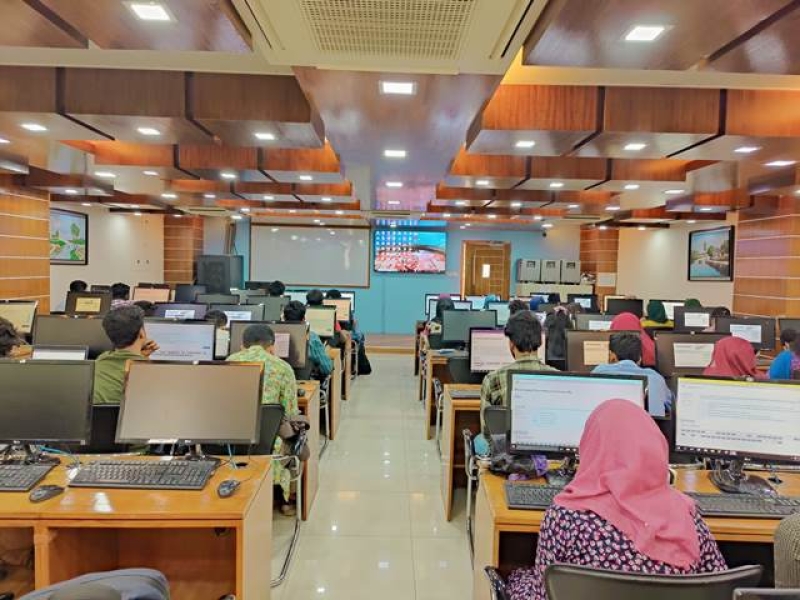- Body of Osman Hadi Returns to Dhaka From Singapore Late |
- Fakhrul condemns attacks on media, calls for unity, justice |
- 2 cops among 4 hurt in clash outside Indian Assit H.C. in Ctg |
- Inqilab Moncho urges people to avoid violence |
- Hadi’s death: Prothom Alo, Daily Star offices set afire |
DU students leverage Facebook, YouTube for learning: Research

FB & YouTube have become integral to students’ academic and informal learning activities.
Dhaka, Nov 25 - In an era of rapid globalisation and technological advancement, social networking sites such as Facebook and YouTube have become integral to students’ academic and informal learning activities.
A recent study published in the Teacher’s World: Journal of Education and Research by Saiful Islam and A B M Najmus Sakib explores how Dhaka University utilised these platforms for educational purposes during the research period from January to December 2022.
The research, conducted over an extensive period, sheds light on the evolving patterns of social media usage among university students in Bangladesh.
Key Findings of the Study
The study employed a mixed-method approach, including structured surveys and semi-structured interviews, to gather data from 130 Dhaka University students.
The research focuses on the role of Facebook and YouTube in both formal academic studies and informal learning, guided by Social Learning Theory (SLT).
The theory emphasises learning through observation, imitation, and modeling—a process facilitated by these platforms.
Demographic Insights
Nearly half of the respondents, both male and female, belong to the age group of 20–22 years.
A smaller proportion of students under 20 years (13.1%) and those above 22 years (approximately 40%) were also included. The respondents spanned different educational levels, including undergraduate, graduate, and post-graduate students, indicating that social media use cuts across all academic tiers.
Facebook in Education
The study highlights that Facebook plays a crucial role in academic activities, with 92.3% of respondents using it to enhance their studies. Common uses include:
· Attending online classes.
· Sharing academic materials via Messenger groups.
· Providing feedback during live sessions.
· Participating in group discussions.
Facebook also serves as a hub for collaborative learning, with students uploading and sharing course content and class lecture links.
YouTube’s Growing Role
While Facebook dominates in academic contexts, YouTube excels in informal learning. About 75.4% of students rely on Facebook for informal study, compared to 79.2% who turn to YouTube.
Popular YouTube channels such as 10 Minute School, Farjana Drawing Academy, and 5-Minute Crafts provide content on diverse topics ranging from graphics design and videography to spoken English and health-related tutorials.
Many respondents described YouTube as “the teacher of all teachers,” thanks to its vast repository of free, accessible educational materials.
Impact of the Pandemic
The COVID-19 pandemic significantly influenced the use of social media in education. The study notes that social networking platforms replaced traditional classrooms during lockdowns.
Online education became the norm, with students increasingly relying on Facebook and YouTube for coursework, tutorials, and virtual group discussions. This shift underscores the necessity of integrating social media into the formal education system to address future disruptions.
Call for Further Research
The researchers recommend further sociological studies to analyze the role of other platforms like LinkedIn, WhatsApp, and Twitter in educational activities.
They also stress the need for a deeper exploration of the long-term effects of social media usage on academic and informal learning.
This study highlights the dual role of social media as a tool for formal education and informal learning among the Dhaka University students.
As the use of patterns of platforms like Facebook and YouTube continue to evolve, their impacts on education in Bangladesh remain profound.-UNB

